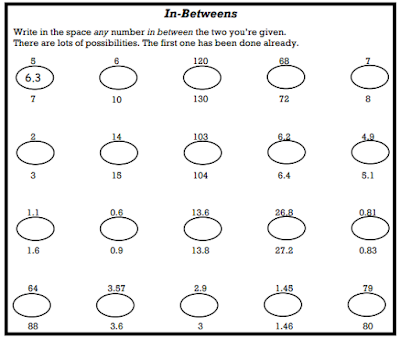 I know that many of you have been off having wonderful adventures over summer so may have missed some of my updates. I've summarised them all here so you can start the new school year knowing exactly what's changed on resourceaholic.com.
I know that many of you have been off having wonderful adventures over summer so may have missed some of my updates. I've summarised them all here so you can start the new school year knowing exactly what's changed on resourceaholic.com.Resource Libraries
My big job over summer was to totally rewrite my A level resource libraries as they were still aligned to the legacy specification. I have now published the following new libraries:
Year 12 Pure Maths
Year 13 Pure Maths
Statistics (Year 12 and 13)
Mechanics (Year 12 and 13)
They're all accessible from the top menu. I hope they are helpful to A level teachers. Thanks to Ian Tomkin who kindly volunteered to help me rewrite my mechanics page (I don't teach mechanics so I needed help with this!).
I also did some work on my Key Stage 3 and 4 resource libraries (algebra, number, shape and data). Where there were gaps, I added lessons from bossmaths.com. If you haven't seen Boss Maths before (I blogged about it in Gems 89) then do check it out. You might like lessons such as 'Conventions for labelling the sides and angles of triangles' and 'Drawing diagrams from a written description'.
Conferences
I updated my maths conferences page for 2018/19. Please let me know if I've missed anything. I will update it throughout the year when events are announced. Have a look now and see if there's anything you want to attend. There are so many great events to choose from!
I will be speaking at #mathsconf17 in Birmingham on 13th October. Here's a description of my workshop:
If you're coming to #mathsconf17 and looking for somewhere to stay on the Friday night a few of us have booked the Premier Inn near New Street Station.
Blog Posts
In case you missed it, I wrote Gems 92 right at the start of the holidays. It included loads of lovely stuff, particularly on ratio. In early August I also wrote Gems 93 which featured lots of great tasks and resources.
In conjunction with Craig Barton's latest podcast, Slice of Advice: First Lessons, yesterday I published a post on Year 7 Maths Activities in which I shared six tasks which might work well in a first lesson of the year.
Do have a listen to Craig's podcast for loads for great advice on first lessons.
For those of you who are planning your first Year 12 lesson, check out my post from last year 'Planning for September: Year 12' in which I shared some lesson slides that you might find helpful.
I launched my fourth maths social event and have already sold a quarter of the tickets. #Latemaths takes place in London during half term on Saturday 27th October. It features a book launch and loads of mathematical fun so do book tickets now before they sell out. Bring your colleagues! All the details are at latemaths.weebly.com.
Displays
If you enjoy putting up a couple of new posters at the start of a new school year, or if you work in a school that insists on fresh corridor displays for Open Evening, you can find my updated displays page here.
And finally...
I wrote the MA August e-News which you can read here for the latest news from The Mathematical Association. I also wrote a magazine article about teaching indices and an accompanying resource which (hopefully) will be published at some point in the next couple of months.
Before anyone tells me off for working over summer instead of relaxing, I can assure you that I did a huge amount of relaxing! Because I'm starting a new job, I had no school work to do over summer for the first time in ten years. I spent the first two weeks of the summer break away on a wonderful family holiday, staying in a cottage near Hay-on-Wye. I had a lovely time in the remaining four weeks - highlights included an amazing night out with friends at my first ever Secret Cinema event, enjoying two awesome escape rooms with lovely colleagues, watching numerous films with my husband (A Quiet Place is so good!), and enjoying lots of drawing, jigsaws and days out with my two daughters. I also got the chance to catch up with some friends from Twitter, thanks to Dr Frost.
 |
| Megan, Adam, me, Stuart, Chris, Nikki, Colin, Jamie and Daniel. Photo taken by @CantabKitty at Jamie Frost's summer drinks. |
My youngest daughter is starting reception next week and I'm going full-time after six years of working part-time... So I guess it's nearly time to switch the alarm clock back on. Like most people, I'm feeling very sad that summer is over but I'm sure that within a week or two we'll all be back in the swing of things.
Good luck with new school year everyone!





















